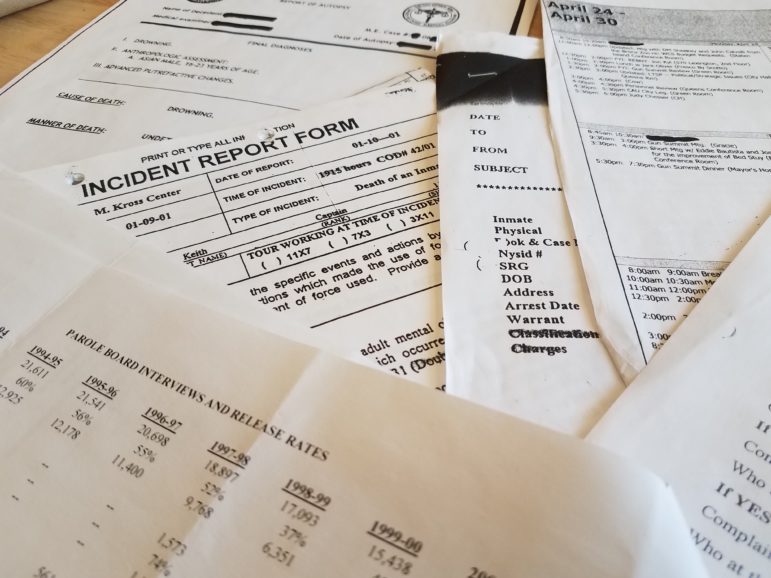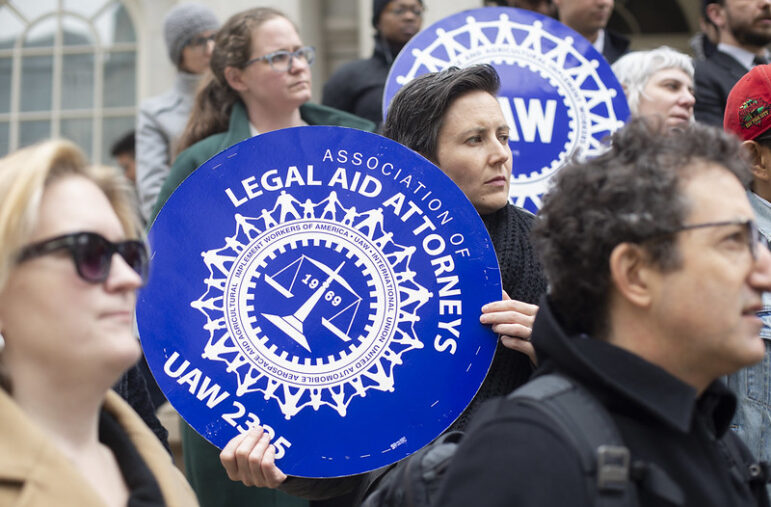“We need stricter and shorter deadlines for agencies to follow to ensure that [freedom of information] requests are fulfilled, transparency is met, and democracy is maintained.”

City Limits
Documents released to City Limits under FOIL.In 2010, the Transportation Security Administration unveiled a new security device for airports. Rather than metal detectors, TSA began using “body scanners,” which effectively saw through travelers’ clothes to detect weapons or other potentially dangerous objects. What TSA did not disclose was that every time a traveler went through these detectors, a nude image of the traveler was captured, stored, and transferred on government servers.
In 2011, the Electronic Privacy Information Center (EPIC) filed a Freedom of Information request that provided them with documents revealing this practice. After a national outcry, the scanners were changed such that anatomical details were not captured, and images were not stored.
Democracy is only possible with transparency. If Americans do not know what their government is doing, they cannot provide oversight, and they cannot ensure that their rights are being upheld. As a result, every state and the federal government has freedom of information systems allowing the public to access government records. Unfortunately, while EPIC’s federal FOIA request was successful, requests under New York’s Freedom of Information Law do not create the kind of transparency necessary to allow New Yorkers to oversee their state and local governments.
While problems with the FOIL system are myriad, the most significant issue is delay. Under current rules, agencies are required to acknowledge a request within five days, but they can delay issuing a determination and final response within a “reasonable” timeframe. In practice, this means requests are left pending until long after the information requested has gone stale.
The vague standard of fulfilling requests within a “reasonable” timeframe allows for agencies to subvert accountability. The New York Police Department (NYPD), for example, has a policy of delaying almost every request by six months before even looking at it. A recent court decision found such a delay to be “reasonable” due to staffing shortages, despite the fact that the NYPD is by far the largest and most well-funded police department in the country.
We need stricter and shorter deadlines for agencies to follow to ensure that requests are fulfilled, transparency is met, and democracy is maintained. The proposed FOIL Timeline Act, sponsored by state Assemblymember Steven Raga and State Senator James Skoufis, sets clear and strict deadlines for responding to requests. Under the act, agencies will have a maximum of 30 days to deny requests and, if fulfilling a request, a maximum of 60 days to provide documents.
These firm deadlines would force long overdue change from agencies that have shockingly inadequate response times. The bill would challenge the New York City Office of the Mayor, for example, to shorten its response time by months, as the office currently takes over one year, on average, to respond to requests. It would increase transparency from local agencies like Brooklyn Community Board 2, which on average takes nearly four and a half years to respond to requests, and the Department of Design and Construction, which takes 1359 days—3.7 years—on average.
The FOIL Timeline Act would help to ensure FOIL’s effectiveness at a time when its system of accountability is desperately needed. In the post-9/11 era, the government has implemented extensive systems of surveillance technology that are often hidden from the public. Communities are being intensely monitored on the basis of their race, religious identity, or even political views; it is imperative for the public to hold the government accountable for such discrimination.
The legislative declaration of FOIL states that “a free society is maintained when the government is responsive and responsible to the public, and when the public is aware of governmental actions.” Government responsibility cannot exist without government responsiveness—but FOIL has failed to provide this in its current state. The FOIL Timeline Act would mandate the government responsiveness that the original legislative declaration envisioned, ensuring a stronger and more transparent democracy.
Cleary is a civil rights intern at the Surveillance Technology Oversight Project (S.T.O.P.) and a rising junior at Columbia University studying sociology with a minor in history. She also serves as deputy city news editor for the Columbia Daily Spectator.








